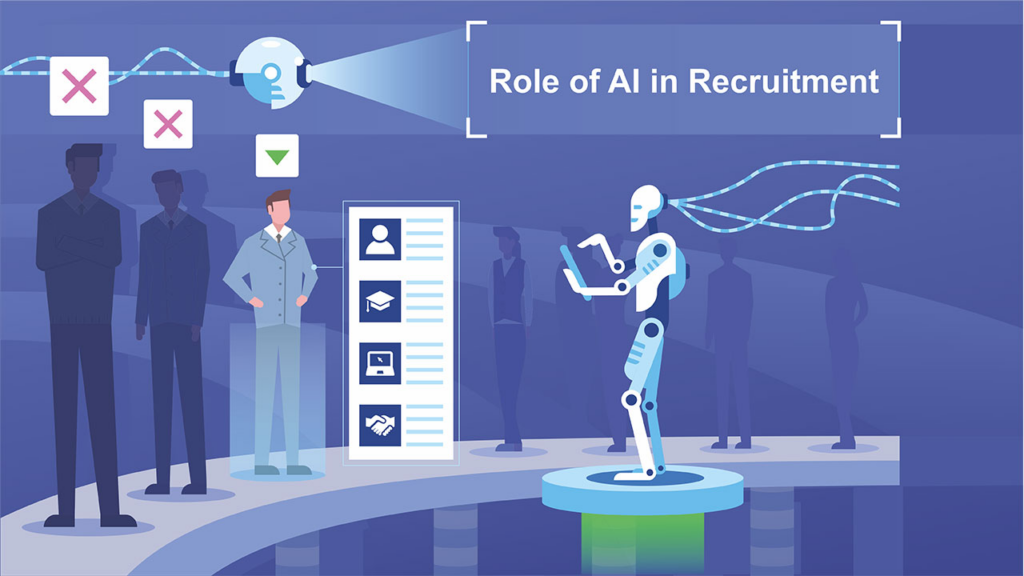
The human resources (HR) landscape is undergoing a significant transformation with the integration of Artificial Intelligence (AI). Among the most impacted areas are recruitment and onboarding—two crucial processes that determine the quality of talent entering an organization and how effectively they integrate into the company culture. AI is not only streamlining these processes but also making them smarter, faster, and more data-driven.
This blog explores how AI is reshaping recruitment and onboarding, the technologies involved, the benefits it offers, and the challenges HR teams should be mindful of.
1. The Evolution of AI in Human Resources
Traditionally, recruitment and onboarding involved manual tasks—reviewing resumes, scheduling interviews, and walking new hires through company policies. These processes were time-consuming, prone to bias, and often inefficient.
AI now helps automate and optimize these workflows by:
- Parsing resumes at scale
- Matching candidates based on skills and fit
- Predicting job success using historical data
- Personalizing onboarding experiences for new hires
This evolution allows HR professionals to focus more on strategic decision-making and human engagement rather than administrative tasks.
2. AI in Recruitment: Smarter, Faster, Fairer
a. Resume Screening and Shortlisting
AI-powered tools can scan thousands of resumes in seconds, identifying top candidates based on pre-defined job requirements. Natural Language Processing (NLP) and machine learning models assess qualifications, experience, and relevance.
Benefits:
- Saves time on initial screenings
- Reduces human error and unconscious bias
- Ensures consistency in evaluation
Popular Tools: HireVue, Pymetrics, X0PA AI, Freshteam
b. Predictive Candidate Matching
AI systems use historical hiring data to predict a candidate’s likelihood of success in a role. They can analyze personality traits, career trajectories, and cultural compatibility based on digital footprints and application data.
Key Features:
- Predictive analytics for performance and retention
- AI scoring systems to rank candidates
- Behavioral assessments via gamified evaluations
c. Interview Scheduling and Chatbots
AI chatbots handle initial candidate interactions, answer FAQs, and schedule interviews, reducing delays and improving candidate experience.
Example Use Case:
- A candidate receives an automated message offering interview slots, books a convenient time, and gets instant confirmation—no human intervention required.
d. Video Interview Analysis
Advanced AI tools analyze recorded video interviews to assess tone of voice, facial expressions, and word choice. Some platforms claim to identify confidence, honesty, or emotional intelligence.
Caution: While useful, such technologies can be controversial and must be used ethically, ensuring fairness and transparency.
3. AI in Onboarding: Personalization at Scale
The onboarding process sets the tone for an employee’s experience with a company. AI enhances this journey by automating paperwork, tailoring content, and supporting continuous engagement.
a. Automated Document Management
AI tools streamline the paperwork process by auto-filling forms, verifying credentials, and integrating employee data across systems.
Benefits:
- Minimizes manual data entry errors
- Speeds up compliance procedures
- Improves new hire satisfaction
b. Personalized Learning and Development Plans
AI-powered Learning Management Systems (LMS) customize training paths based on the employee’s role, skills, and prior experience.
Example:
- A software engineer receives coding challenges, cybersecurity training, and product overviews tailored to their position—all recommended by AI.
c. Virtual Onboarding Assistants
AI-driven assistants guide new employees through onboarding checklists, answer questions, and schedule orientation meetings.
Features:
- 24/7 support through conversational interfaces
- Progress tracking dashboards
- Integration with internal tools (Slack, MS Teams, etc.)
4. Benefits of AI in Recruitment and Onboarding
Efficiency
- Faster candidate processing and onboarding
- Reduced administrative load for HR teams
Accuracy
- Data-driven decision-making with minimal human bias
- Consistent assessment across applicants
Scalability
- Handles high-volume hiring without sacrificing quality
- Ideal for seasonal recruitment or rapid expansion
Improved Experience
- Timely communication with candidates and new hires
- Personalized onboarding boosts engagement and retention
5. Challenges and Ethical Considerations
Despite its advantages, implementing AI in HR requires careful consideration of the following:
Bias in Algorithms
If trained on biased data, AI tools can unintentionally perpetuate discrimination. It’s vital to audit models for fairness and inclusivity.
Privacy Concerns
AI systems often process sensitive personal data. Organizations must ensure data protection, informed consent, and compliance with regulations like GDPR.
Transparency and Accountability
Candidates should know when AI is involved in decisions. HR teams must be able to explain how the system works and intervene when needed.
Over-Reliance on Automation
AI should augment—not replace—human judgment. Critical decisions still require empathy, intuition, and contextual understanding.
6. Best Practices for Integrating AI in HR
- Start Small: Pilot AI tools for a specific function (e.g., resume screening) before scaling across HR.
- Ensure Data Quality: Clean, unbiased data is essential for accurate AI performance.
- Maintain Human Oversight: Use AI to assist—not replace—HR professionals.
- Be Transparent: Inform applicants when AI is used and allow for human review.
- Train HR Staff: Educate teams on how to use, monitor, and interpret AI insights effectively.
7. The Future of AI in Talent Acquisition
As AI continues to evolve, we can expect even more advanced capabilities:
- Emotionally intelligent AI that adapts tone and content during interactions
- AI-driven career pathing to help employees visualize growth
- Voice-based AI for real-time feedback during interviews
- Blockchain integration for secure verification of credentials and identity
Organizations that embrace these innovations strategically will be better positioned to attract and retain top talent in a competitive landscape.
Conclusion
AI is rapidly becoming an indispensable tool in HR, transforming how companies find, evaluate, and onboard new talent. By automating the mundane and enabling data-driven insights, AI empowers HR teams to focus on building better human connections and fostering organizational growth.
However, with great power comes responsibility. Organizations must use AI ethically, with transparency and fairness at the core of their HR practices. When balanced well, AI in recruitment and onboarding isn’t just a technological upgrade—it’s a strategic advantage.